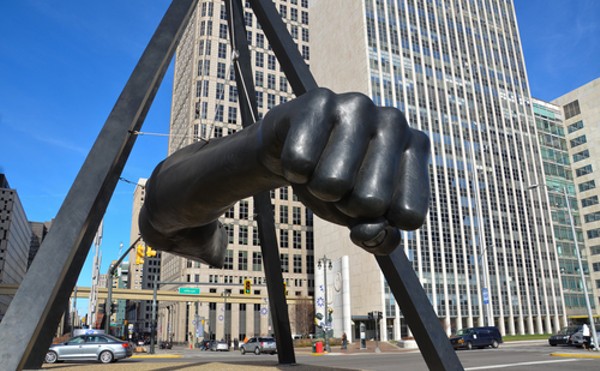For a brief period in the mid-’60s, Detroit was the Model City. Newspapers and magazines from coast to coast wrote admiringly of its young, progressive mayor, interracial civic committees, anti-poverty programs and apparent promise. Then came the disastrous riot of 1967.
But why is Detroit becoming a model city of a different type now for historians?
For one thing, Detroit fits in with a trend within the field of history to look at cities and intertwined issues of class and race. For some former residents, writing about Detroit is a returning to roots.
Here are some of the other reasons cited:
• There’s an element of opportunity here for historians. The city is relatively under-studied, compared to Chicago or New York, for instance.
• Younger historians are hardly working from scratch here. Heather Ann Thompson of the University of North Carolina recalls the inspiration for her own work in the 1975 book Detroit: I Do Mind Dying: A Study in Urban Revolution by Dan Georgakas, Marvin Surkin and Manning Marable. Others mentioned such earlier works as Richard W. Thomas’ Life for Us Is What We Make It: Building Black Community in Detroit and Sidney Fine’s Violence in the Model City: The Cavanagh Administration, Race Relations, and the Detroit Riot of 1967.
• Studies of the city’s industrial history and the union movement, particularly the UAW, also overlap with the recent work. Revisionist examinations of the internal conflicts and compromises of the labor movement have been particularly important. (Nelson Lichtenstein’s Walter Reuther biography, The Most Dangerous Man in Detroit, is a prime example of the latter.)
• Detroit offers historians a bounty of archives to supply primary sources. The Reuther Library of Labor and Urban Affairs, the Burton Historical Collection of the Detroit Public Library and the records of other groups, such as the Detroit NAACP, all came up in discussions with historians.
• There is apparently a snowball effect in the wake of Thomas W. Sugrue’s widely lauded The Origins of the Urban Crisis. Sugrue, says Thompson, “paved the way” for discussion of the city’s stories that she and others are exploring. University of Massachusetts historian Kevin Boyle credits The Origins of the Urban Crisis as the inspiration for his upcoming book on Detroit in the 1920s.
W. Kim Heron is the Metro Times managing editor. Send comments to [email protected].




